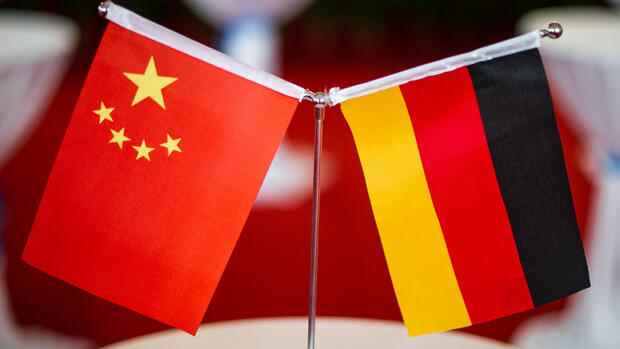Berlin The domestic policy spokesman for the Union faction in the Bundestag, Alexander Throm (CDU), has spoken out in favor of a temporary ban on Chinese companies investing in German companies.
“The federal government must now present a risk analysis as soon as possible, in which areas company investments should be restricted for reasons of strategic independence,” Throm told the Handelsblatt. “Until then, I also think a temporary moratorium on participation is worth considering.”
The Greens want to significantly tighten the legal plans for foreign investments in sensitive technology areas and critical infrastructures. In the past few days it has become clear “that there is an urgent need for legal readjustments in order to be able to prohibit strategically motivated takeovers by foreign investors even more easily in the future – also and especially with a view to critical infrastructures,” said parliamentary group leader Konstantin von Notz of the Handelsblatt. “This is also an important building block for filling the turning point with political life.”
Top jobs of the day
Find the best jobs now and
be notified by email.
On Friday, the federal government confirmed an ongoing investment review process for the planned sale of the chip factory. The Handelsblatt had previously reported that the takeover would probably be approved. A spokesman for the responsible Federal Ministry of Economics said that the examination of a possible takeover of Elmos Semiconductor by the Swedish company Silex, a subsidiary of the Chinese Sai group, would be “completed in good time”.
CDU: Scholz “didn’t understand the need for a turnaround in China”
At the end of last year, Elmos announced that it wanted to sell its wafer production facility in Dortmund to the Swedish competitor Silex for a total of around 85 million euros. Elmos develops, produces and sells semiconductors primarily for use in cars.
>> Read also: There will be no “business as usual” – this is how the new China strategy is created
In the case of the chip factory, von Notz warned that the warnings from the secret services should be taken “very seriously”. The realization that one should not become too dependent on a future world power was only slowly gaining ground with regard to China.
He recalled a statement by the head of the Office for the Protection of the Constitution, Thomas Haldenwang. At a hearing in the Bundestag, he said that Russia was the storm and China was climate change. “If you think this through to the end, it’s overdue that we have to deal very decisively with the question of which foreign companies are already in our infrastructure today,” said von Notz.
He thinks here above all of the Chinese network supplier Huawei.
The government’s approval for China’s partial entry into the Port of Hamburg was also recently criticized. The federal cabinet decided on Wednesday that Cosco may only acquire a stake of less than 25 percent in the container terminal – instead of the planned 35 percent. However, many departments were in favor of a complete ban on the business due to safety concerns.
Throm accused Chancellor Olaf Scholz (SPD) of “not understanding the need for a turnaround in China”. “Instead of selling our silverware, the federal government should promote Germany’s digital independence,” he said. “Especially in the neuralgic area of IT hardware, German companies are in short supply.”
The Federal Ministry of Economics is examining other planned investments in China
The CDU intelligence expert Christoph de Vries pointed out the risks associated with China. “The fact that the Chancellor is once again ignoring the warnings of the intelligence services and wants to approve the takeover of the chip manufacturer Elmos is security policy madness and a sell-out of German interests,” he told the Handelsblatt. “Either Olaf Scholz massively underestimates the systemic risks, or he is willing to take an incalculable risk with China’s power games.”
Listen to our podcast here: How Germany wants to free itself from its dependence on China
According to reports, the Federal Ministry of Economics is currently examining other planned investments that involve acquisition by Chinese companies or their subsidiaries. Government spokesman Steffen Hebestreit said the Federal Chancellery only found out about the planned deal in Dortmund from the media on Thursday. Chancellor Scholz will travel to China next week.
A spokeswoman for the EU Commission referred on Friday to the EU rules for checking foreign direct investments, which have been in force since October 2020. Possible measures would be coordinated if one came to the conclusion “that a potential transaction could pose a threat to the security or public order of the European Union”.
According to this, an EU country is obliged to inform the EU Commission and the other member states about every foreign direct investment that is examined in this country. Countermeasures could then be proposed to reduce risks, for example to public safety.
More: The Bundestag’s secret service body focuses on China deals
